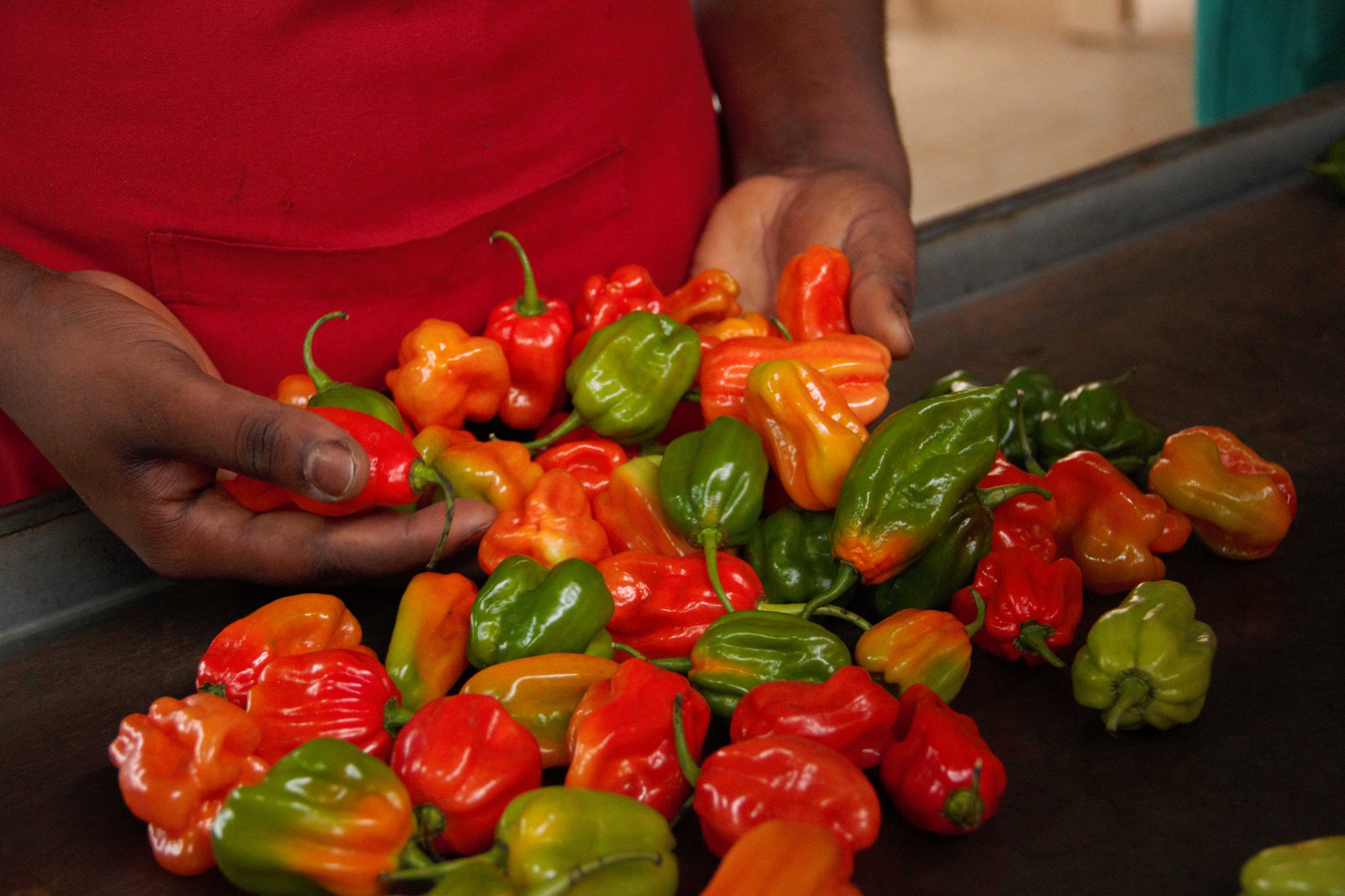
The project's overall goal is to increase the competitiveness, safety and the sustainability of Jamaica's hot pepper industry by ensuring a consistent supply of high-quality, pest-free peppers. As such, the project is aimed at improving compliance with food safety and plant health requirements along the hot pepper value chain to increase production and export to markets such as the European Union, United Kingdom, United States, Canada and other countries in the region.
The project intends to achieve the goal by: improving the technical and resource capacity of local research and regulatory bodies involved in sanitary and phytosanitary (SPS) management; providing greater access to clean planting material to reduce the prevalence of pests and diseases toward increasing yields; increasing stakeholders' capacity to adopt risk-based food safety systems; promoting sustainable agricultural practices; and increasing export potential through market studies and bilateral agreements.
The successful execution of this project would provide the foundation for replication in other commodities in Jamaica and in other member states of the Caribbean Community (CARICOM).
More than 3,600 farmers from the parishes of St Elizabeth, St Mary and St Ann who depend on farming as their main, if not only, source of income are the primary beneficiaries. By adopting and complying with internationally accepted plant health and food safety standards, and implementing new production techniques, these farmers have the potential to expand their access to foreign markets. Other beneficiaries include nursery operators, agro-park operators, processing facilities, export-oriented micro, small and medium enterprises (MSMEs), research institutions and laboratories, extension officers, and consumers.
The overall targets are to reduce pest-related interceptions by 25%, increase production and distribution of clean seeds or planting materials by 20%, and increase pepper production by 10% over the course of three years.
This ambitious project endeavors to deal with a range of SPS issues involving many different stakeholder groups. It intends to improve the practices of regulatory bodies, laboratories, nurseries, farms and processing facilities. This includes activities such as developing a comprehensive pest-surveillance system, establishing inspection and monitoring mechanisms for nurseries, farms and facilities that handle produce, and exploring the establishment of pest-free areas. Even though the project is ambitious, there appears to be strong national ownership and solid commitment on behalf of the project partners to meet the various targets.
This type of value chain approach could be replicated in neighboring CARICOM countries and other strategic value chains in Jamaica. This is the first STDF project that deals specifically with the hot pepper value chain and the first STDF project to be funded in Jamaica.
Improve the technical and resource capacity of local research and regulatory bodies with a focus on reducing the prevalence of pests and on the distribution of clean seeds to enable greater availability of clean planting material
Due to the limitations at current research and certification facilities, there is a limited supply of certified clean planting materials and seeds. The intended outputs are to strengthen the capacity of private nurseries to produce and store breeder/foundation seeds for pepper varieties with the desired traits. The project is aimed at building the technical, research and testing capacity for personnel in SPS management. This will help support the establishment of the appropriate legal framework to regulate and monitor the viability of seeds and seed quality.
Increase the capacity of stakeholders to produce safe foods that satisfy local and international market access requirements
Hot pepper farmers are unable to meet the demand for hot peppers due to low market standard supply. This output is aimed at selecting value chain actors (farmers, middlemen and exporters); conducting farm needs assessment for food safety management; developing a food safety program to build capacity; and collaborating with ministries and departments for training and education programs on good agricultural practices and food safety.
This output seeks to assess reasons for the rejection of hot pepper productions (fresh and processed) into international markets. The project provides corrective measures through a market access assessment and the development of a communication-marketing mechanism. Equal participation of men and women is encouraged, with a minimum of 30% of participants being women.
Promote the value chain and food safety systems approach by strengthening sustainable and resilient practices to increase the output of fresh pepper production, storage and transformation
This output aims to strengthen the technical capacity of agencies on sustainable, climate resilient and adapted good agricultural and transformation practices toward improving yields and compliance with standards. The equal participation of men and women is encouraged, with a minimum of at least 30% of participants being women.